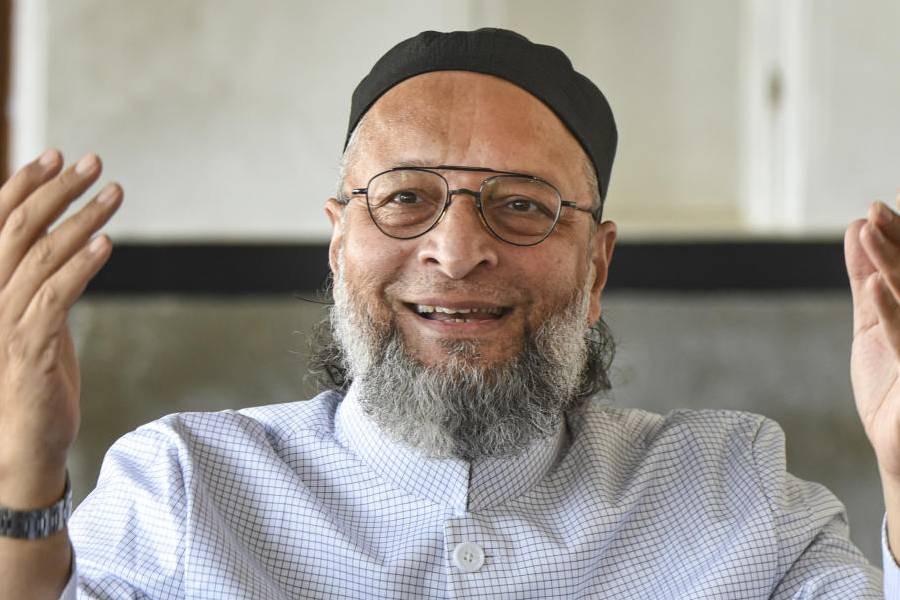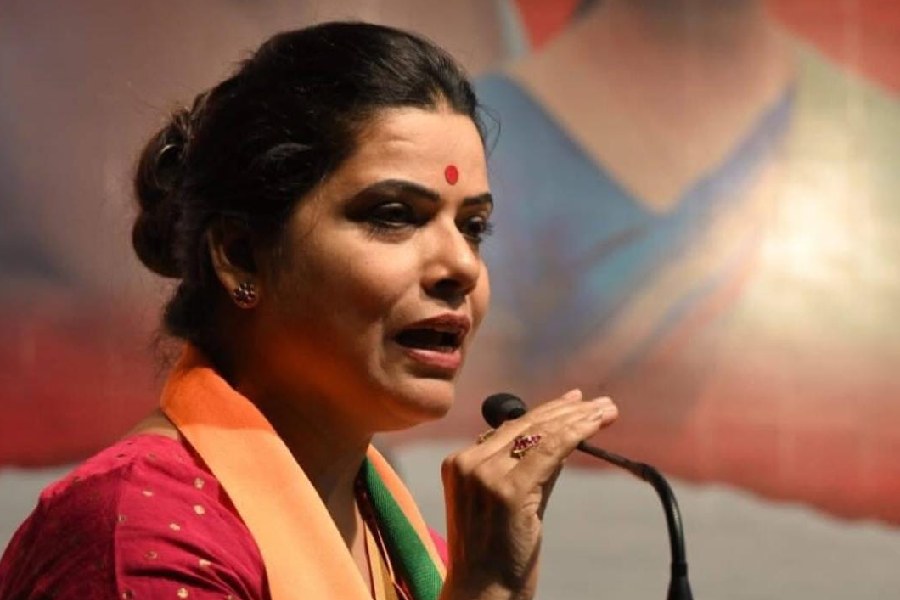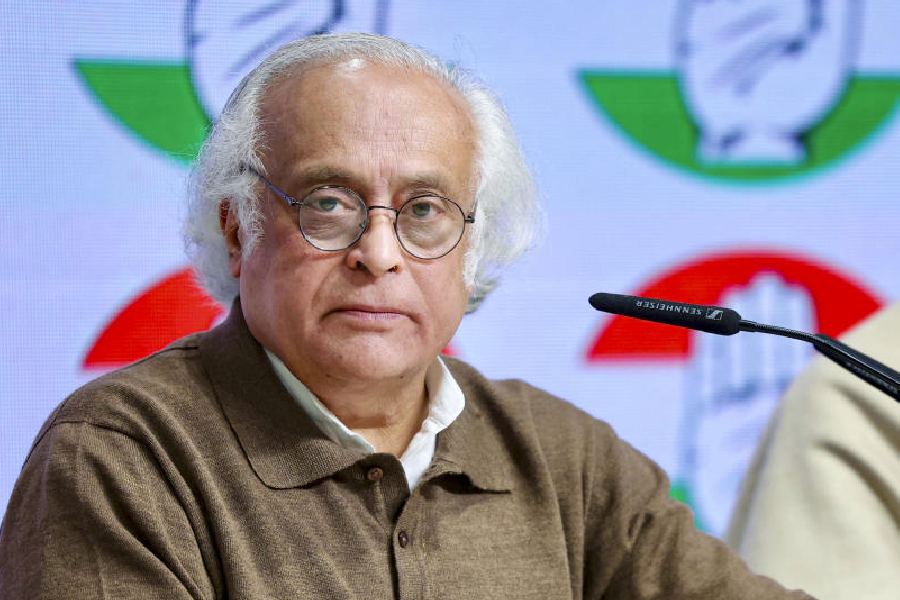|
|
| Achuthanandan: still going strong |
Something extraordinary happened in the Kerala unit of the Communist Party of India (Marxist) on the eve of the forthcoming elections in the state. Faced with street protests and an abusive campaign against the secretary of the party?s state unit, Pinarayi Vijayan, the CPI(M) politburo retracted its earlier decision and agreed to field 83-year-old V.S. Achuthanandan as a candidate.
This is not the first time that factionalism within the Kerala unit of the party has been out in the open. Two camps, one led by Vijayan and the other by Achuthanandan, have been fighting for the control of the party in Kerala for several years now. In fact, the current phase of inner-party rivalries in the state goes back to the Kozhikode conference of the unit in 1991. Vijayan had, however, won the recent round. The politburo?s first decision not to field Achuthanandan was seen by his supporters as the handiwork of the state party secretary. The reversal of that decision could, therefore, be seen as a defeat for Vijayan.
It is almost certain that the issue will be intensely debated within the CPI(M) long after the elections. There would be theoretical hair-splitting on what the politburo?s rethink on Achuthanandan means for the Leninist principle of ?democratic centralism?, by which every communist party swears. During a recent visit to Kerala, I found some party leaders wondering aloud if this would be the course for the party?s future. It was good, they argued, that the politburo changed its earlier decision in deference to the popular demand for Achuthanandan?s nomination. There were others, of course, who argued that the agenda of a party, least of all a communist party, cannot be set by street fights.
For someone from Bengal, the Achuthanandan episode was interesting for a very different reason. As in Bengal, the CPI(M) in Kerala has been debating its responses to the demands of a new economic age. Vijayan has come to be known as the reformist face of the Kerala unit of the CPI(M) ? some even see in him a mirror image of Buddhadeb Bhattacharjee. Vijayan?s reforms brigade has prominent comrades such as Paloli Muhammed Kutty, convener of the Left Democratic Front, M.A. Baby and Thomas Issac (of the People?s Plan fame), just as Bhattacharjee has important pro-reforms lieutenants in ministers like Nirupam Sen, Manab Mukherjee and Ashok Bhattacharyya.
Achuthanandan, on the other hand, is known to be more orthodox. He is Kerala?s tallest peasant leader and he enjoys the support of E. Balanandan, the boss of the party?s labour wing, the Centre of Indian Trade Unions. Together they make a formidable force that can make things really difficult for the reformists.
So, would a victory for Achuthanandan in the CPI(M)?s internal struggle mean a defeat for Vijayan?s reforms agenda? The party?s official response is predictable. The last party congress in New Delhi has made clear its position vis-?-vis economic reforms, the Kerala leaders told me, and the party line applies as much to Bengal as to Kerala.
But in the run-up to the elections, Achuthanandan and his supporters seem to stress a more orthodox, ?pro-people? economic policy over a reformist approach. The LDF manifesto for these elections clearly tries to strike a balance between the two lines. That is why it talks of reviving agriculture and traditional industries such as coir and, at the same time, promises to set up 25 ?digital towns? and to secure private investment in education.
The Vijayan camp, which has a majority in the state committee, argues that it would be suicidal for the party not to project a pro-change face in these times of reforms. When in January this year, Vijayan undertook a march in Kerala, his slogan was ?Comprehensive development based on social justice?. It is another matter that the Congress-led United Democratic Front now has much the same slogan for its election campaign.
The catch lies in Achuthanandan?s campaign. Two major economic issues illustrate his approach to economic reforms. One is the controversy over the UDF?s acceptance of a loan from the Asian Development Bank for ?modernizing government programmes?. Four out of five municipal corporations in Kerala, all run by the CPI(M), have accepted the loans. Only the corporation in Kochi, led by the Communist Party of India, has refused to take it.
Achuthanandan opposed the ADB loans on the ground that these would interfere with the government?s ? and the corporations? ? financial autonomy. Interestingly, the first proposal for the ADB loans came during the tenure of the LDF government in the late Nineties. The LDF regime had then sought the loans in its desperation to tide over the state?s financial bankruptcy. Vijayan has no problem with the loans; but Achuthanandan would have none of these.
The other example was the controversy over a proposal to build a 517-kilometre-long expressway connecting the north of the state to the south. The Achuthanandan camp argues that such a project would require large tracts of land and, therefore, create major displacements of people. In its view, this cannot do much good to the people in a state where land is scarce.
Achuthanandan accepts that Kerala needs a better infrastructure for faster, modern vehicular traffic, but thinks that improving the current infrastructure of both the roads and the railway system is the right approach. His critics say that he is actually not in favour of the foreign investment that would be required for such a major project.
Similar debates rage within the party in Kerala on how to develop its information technology sector. The party is one in accepting that foreign investment is welcome in the IT sector. The last LDF regime had actually begun the work for the state?s first IT hub near Thiruvananthapuram. But the Smart City project in Kochi had brought to the surface the differences between not only the LDF and the UDF, but also within the CPI(M).
So, is the difference within the party over economic development a tussle between the orthodoxy of the old guard and the modernism of the younger generation? Or is it, as many independent analysts seem to think, an octogenarian?s last-ditch battle for power, for chief ministership?
I travelled six sultry hours one day last month ? from Thiruvananthapuram to Thrissur ? in search of an answer from one of the leading left intellectuals of Kerala. Thrissur, by the way, is the most historic of places in Kerala. The town of Kodungallur in Thrissur district is said to be the place where St Thomas landed in the first century in order to spread the gospel; it is famous for its ancient Hindu temples, which attract thousands of devotees, especially during the religious festivals; and it boasts the oldest mosque in the subcontinent ? the Cheraman Masjid.
I travelled to Thrissur, though not for its history, but to meet another Vijayan. M.N. Vijayan had been an academic and a leading light of Marxist intellectuals in Kerala. ?Development, progress are capitalist words,? the 80-year-old Marxist said, ?And in these days of globalization, there are ways in which finance capital can influence the party and the government.? He made no attempt to conceal his anger at the CPI(M)-run civic corporations accepting the ADB loans, ?Modern Kerala wasn?t built with ADB, World Bank loans; it was built with remittances from Keralites living abroad.?
There is a large section in the CPI(M) in Kerala who think like him. Vijayan, the party secretary, will probably win the economic argument eventually. The real challenge ? for both him and Achuthanandan ? will, however, come when the LDF comes to power. Given the current political trends in the state, that test may well be only a few weeks away.











